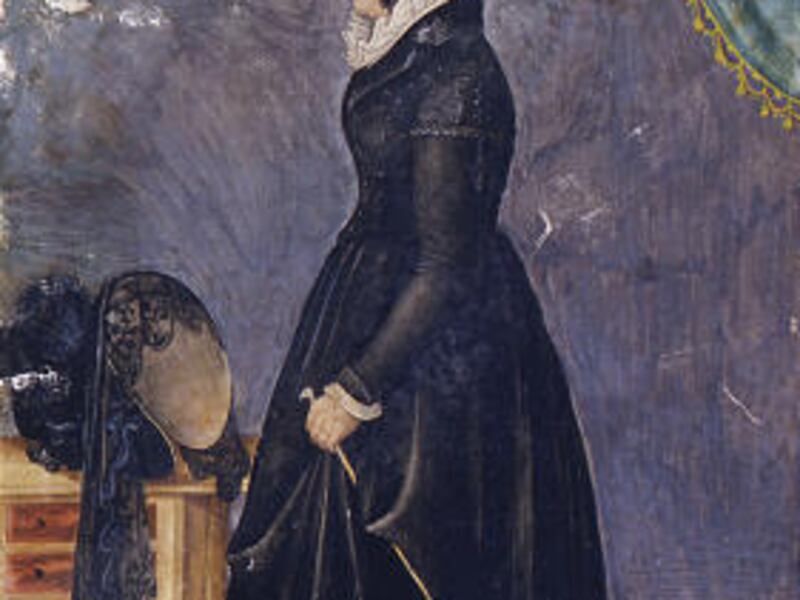"The Lady and the Governor: Emma Hale Smith's and Thomas Carlin's 1842 Correspondence," by Andrew H. Hedges and Alex D. Smith, Mormon Historical Studies, Fall 2008.
Emma Smith took up her pen in the summer of 1842 to save her husband's life. The governor of Missouri, Thomas Reynolds, was trying to get Joseph Smith extradited to Missouri to answer charges of being an "accessary before the fact" to the attempted murder of former Missouri Gov. Lilburn W. Boggs.
Emma wrote letters to convince Illinois Gov. Thomas Carlin to refuse extradition.
An article on the letters by Andrew H. Hedges and Alex D. Smith in Mormon Historical Studies provides a glimpse into Emma's thoughts and personality.
"We have very little from Emma's hands," Hedges, an associate professor of church history and doctrine at Brigham Young University, said in a telephone interview about the article. "These may be the lengthiest documents we have generated by Emma. And so you get a chance to look into her here and see how she expresses herself, see her understanding of a complex situation — and I think it is a window into the Prophet's wife that is usually kind of closed."
Boggs, who was notorious for his "extermination order" that expelled Mormons from Missouri, was shot by an unknown assailant in May 1842. It wasn't long before blame was put at the feet of the Mormons and Joseph Smith. According to the article in Mormon Historical Studies, Missouri's request for extradition was declared improper by an Illinois judge in January 1843. However, before that decision the governor of Illinois intended to arrest Joseph Smith and send him to Missouri.
"All, including Joseph, agreed that it would be foolhardy to surrender him to the Missouri authorities," Hedges and Smith write in the article. Joseph went into hiding.
Meanwhile, Emma wanted to do what she could to help her husband. With Joseph's consent, she wrote directly to the Illinois governor to ask him to reconsider trying to arrest Joseph. "You may write to him whatever you see proper," Joseph wrote (as quoted in the article), "but to go and see him, I do not give my consent at present."
Emma wrote about ordinances, acts of Congress, the Constitution, writs of habeas corpus and other technical aspects of Joseph's situation. She pleaded about the violence the Mormons had already suffered in Missouri and how "there is not the least confidence to be placed" in Missouri's leaders.
To the last point, Carlin responded that he didn't think "any person in Illinois, or Missouri, contemplated personal injury to Mr. Smith by violence in any manner whatever."
As the Hedges and Smith article concedes, Emma's letters failed to change Carlin's mind about pursuing Joseph's arrest. Hedges and Smith do believe, however, that the letters impressed Carlin. A contemporary witness said that Carlin "expressed astonishment at the judgment and talent manifest in the manner of her address."
The authors of the article also conclude that the letters show a side of Joseph and Emma's relationship often overlooked. They wrote: "One also sees, in the brief correspondence between Joseph and his wife, the degree to which the Prophet himself relied on her judgment and support — a degree of dependence perhaps too few over the years have appreciated."
The letters were considered important enough for William Clayton to copy them into Joseph Smith's journal. They will appear in Volume 2 of "The Joseph Smith Papers: Journals."
"She is pretty much a background figure in a lot of church history." Hedges said in a telephone interview. "But she comes into the front here as she's trying to get people off of Joseph's back. I think you see a very bright, articulate, thoughtful woman that otherwise you just don't see much of in church history."
Excerpts from the letters (original spelling and punctuation retained):
"(T)he prosecution against him, has been conducted in an illegal manner; and every act demonstrates the fact, that all the design of the prosecution, is to throw him into the power of his enemies; without the least ray of hope, that he would ever be allowed to obtain a fair trial, and that he would be inhumanly and ferociously murdered; … and your honor will recollect that you said to me that you would not advise Mr. Smith, ever to trust himself in Missouri."
"I appeal to your sympathies and beg you to spare me, and my helpless children. I beg you to spare my innocent children the heartrending sorrow of again seeing their father unjustly drag'ed to prison or death."
"Why then, be so strenuo(u)s to have my husband taken, when you know him to be innocent of an attempt on the life of Governor Boggs, and that he is not a fugitive from justice? It is not the fear of a just decision against him, that deters Mr. Smith from going into Missouri; but it is an actual knowledge that it was never intended that he should have a fair trial."
"And if any one thinks he is illegally seized, under this ordinance he claims the right of Habeus Corpus, under section 17th of the (city) charter, to try the question of identity, which is strictly constitutional."


